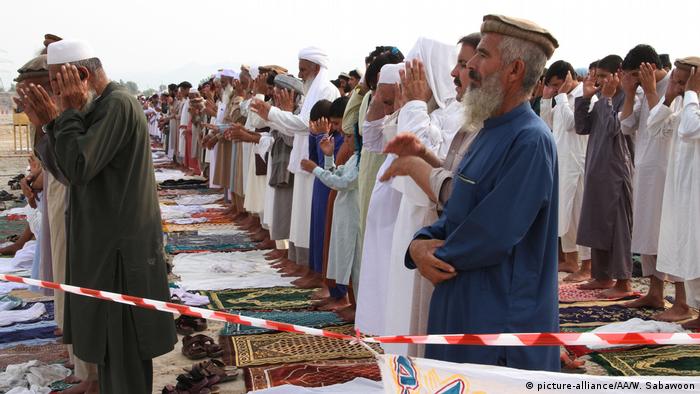Taliban: A case of misinterpreted ideology
On August 15, 2021, the world witnessed the taking over of Kabul by the Taliban. This incident marks the failure of the war started by the United States and its allies twenty years ago. This war against the Taliban saw the loss of life, money, and resources at an unimaginable scale. But the result we witness today calls for deep introspection about what went wrong.
Historically, Afghanistan was largely peaceful, even during the First and Second World Wars, except for a brief civil war in 1929. However, the mid-twentieth century changed the situation for the country. Afghanistan got converted into a Cold War battleground for the United States and the Soviet Union, leading to the Soviet invasion of Afghanistan in 1979. Then, in the 1990s, the outbreak of the civil war turned Afghanistan into a failed state. The official structure was obliterated, paving the way for the reactionary Taliban Government. Another phenomenon emerged at the turn of the twenty-first century when a radical group called al-Qaeda, known to have a haven in Afghanistan, unleashed the barbaric 9/11 attacks on the United States of America. In retaliation, the U.S. spearheaded a massive invasion of Afghanistan, killing thousands and displacing even more.
Carter Malkasian, the former Senior Advisor to Joint Chiefs of Staff of the United States of America, shared how the Taliban religious scholar he met in Kandahar in 2019 told him that, “The Taliban fight for belief, for Jannah (heaven) and ghazi (killing infidels). … The army and police fight for money. The Taliban are willing to lose their head to fight. How can the army and police compete?” He further added that “The Taliban exemplified something that inspired, something that made them powerful in battle, something tied to what it meant to be an Afghan. They cast themselves as representatives of Islam and called for resistance to foreign occupation. Together, these two ideas formed a potent mix for ordinary Afghans.”
The underlying reason for the violence in Afghanistan’s society was recognized but not strategically addressed. The United States and its allies chose to counter violence with violence. They unleashed a war based on the presupposition that they would invade Afghanistan and eradicate the Taliban. In his television appearance post 9/11, President Bush had said that “The Taliban will pay the price.” Since when the Afghan war began, the United States and its allies not only sent in troops but infused billions of dollars, technology, and resources to continue the fight. But what was the result? The skilled American soldiers, supported by a massive state treasury, were unable to defeat the Taliban. They kept striking the human target, oblivious that the real problem was a misinterpreted ideology and not the individuals. The same United States had successfully brought down the Communist colossus merely three decades ago. But why did they not follow the same modus operandi against the Taliban?
In 1981, post his appointment as the President of the United States of America, Ronald Reagan had devised a strategy to combat Communism. As per Mike Gallagher, a U.S. politician, a strategic plan was set in motion against Communism. The emphasis of this plan was that the “U.S. Policy must have an ideological thrust.” They utilized every available resource to bolster Capitalism’s worldview. Be it the think tanks, literature, or the media; the goal was to demonstrate Capitalism as the only suitable alternative to Socialism. The concerted effort reaped results, and within a few years, the strategy culminated in the decline and fall of the Soviet Socialist Empire.

It is noteworthy that the society of Afghanistan tries to validate every aspect of life through their understanding of religion.
In the case of the Taliban, the West significantly underestimated any threat of retaliation. They did not foresee the repercussions of the wilful resistance posed by the mountain-dwelling Taliban against the heavy artillery and cutting-edge technology. They perceived the Taliban as an easy opponent, not meriting strategic planning, as was done for the Soviet Empire. Without paying sufficient attention to the Taliban doctrine, they continued their line of aggression in Afghanistan.
It is noteworthy that the society of Afghanistan tries to validate every aspect of life through their understanding of religion. This mindset prevails over all elements of social life, discussions, transactions, conflict resolutions, and judgments. Mullah Omar had recognized the significance of this validation early on and had started garnering support along these lines from the very beginning. Misinterpreted verses from the Qur’an and Hadith (teachings of the Prophet Muhammad) were effectively propagated over a long period. When many educated people today cannot distinguish between the phrases’ Jihad’ and ‘Qita’l,’ how can it be expected from those with less access to resources? While the former is used to describe ‘self-struggle,’ the latter is used to describe ‘war.’ Whereas the former is a matter of individual choice, the latter is a matter of state and is subject to various situations. The Qur’an is a comprehensive peace doctrine, as reflected in the life of the Prophet of Islam, who was willing to forsake everything for sustaining peace. An objective study of the Qur’an will suffice to make anyone understand that Islam upholds peace as the highest ideal, which is why violence in the name of Islam becomes highly counterintuitive.
Groups like the Taliban are a manifestation of the misinterpretation of an ideology. The answer to tackle this issue does not lie in perpetrating violence against them. This subject needs to be dealt with in greater depth. The present-day takeover of Afghanistan by the Taliban is not the end of the story. Instead, it is a new beginning that has set a precedence for the ills of a misrepresented ideology. Today, the onus of countering the Taliban does not rest merely on the United States or its allies. It is also upon the O.I.C, prominent Muslim scholars throughout the world, to join hands to find a solution to correct the misinterpretation of the texts and promote the ideology of peace as the spread of an ideology such as the Taliban would not only impede progress toward achieving a peaceful society but will also have a negative influence on the lives of millions of Muslims worldwide.
